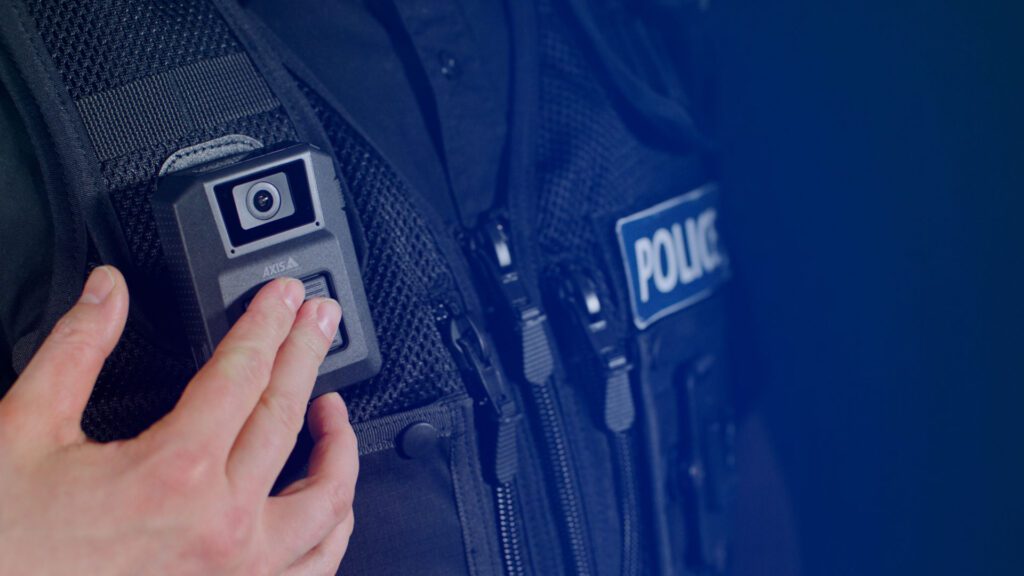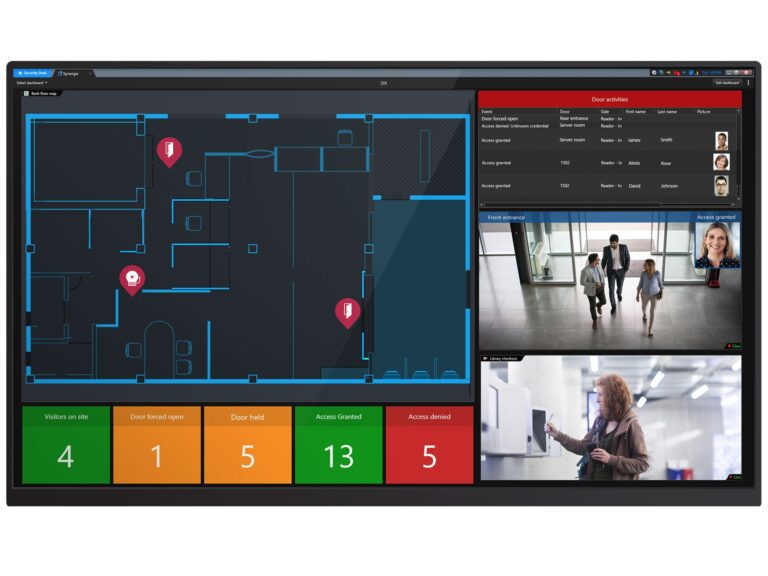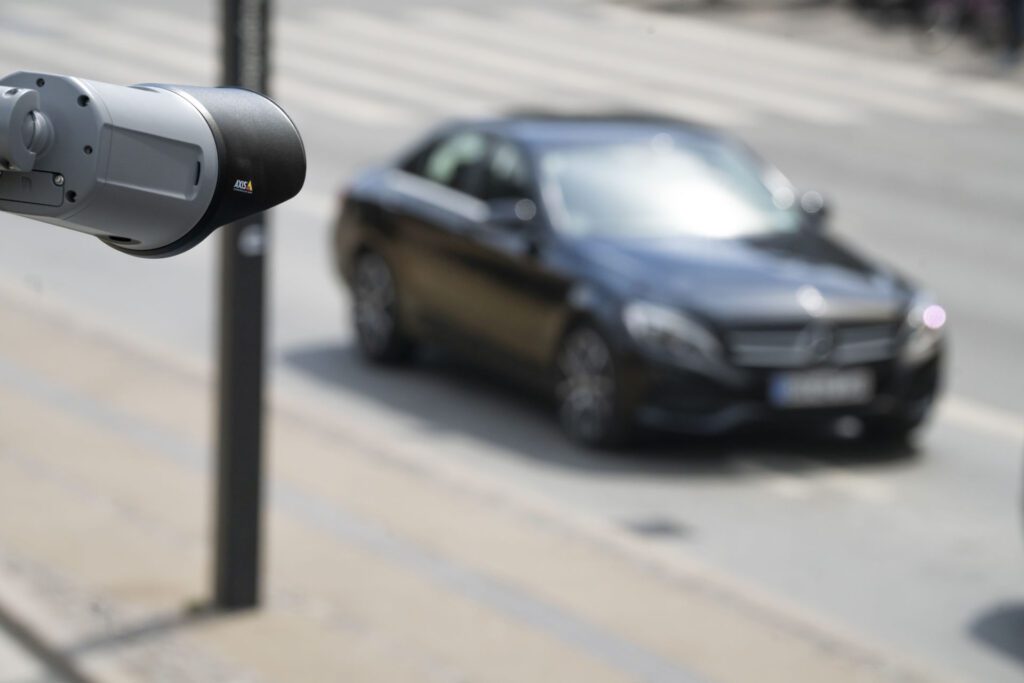AI Driven Surveillance for Law Enforcement

Table of Contents
Artificial Intelligence (AI) has revolutionized surveillance, providing tools that can analyze vast amounts of data in real-time. Security professionals can now identify and respond to potential threats before they escalate. AI driven cameras and sensors can detect unusual behavior patterns, unattended objects, and unauthorized access to restricted areas, ensuring a rapid response to any incident.
In this article, we will review how AI can help security professionals and law enforcement agencies develop cutting edge strategies and solutions to implement “Proactive Policing” strategies. These solutions can assist law enforcement in changing the culture of security from reactive to proactive by adopting network-based, AI equipped security solution.
Real-Time Communication Systems: Enhancing Coordination and Response

Modern public safety demands seamless communication between different agencies. Network-connected devices enable real-time sharing of critical information, from live video feeds to instant alerts. This interconnectedness ensures that law enforcement officers and security teams are always on the same page, which is crucial during emergency situations.
The ability to seamlessly share data and intelligence is paramount during rapidly unfolding emergency situations where time is of the essence. AI driven video analytics can automatically detect and flag potential threats, triggering instant notifications to all relevant agencies, thereby accelerating response times. Moreover, with AI enhanced facial recognition and license plate reading capabilities, authorities can quickly identify suspects and track their movements across multiple jurisdictions, aiding in coordinated pursuit and apprehension efforts.
Cybersecurity: Safeguarding Digital Infrastructure

As we increasingly rely on digital solutions and network-connected systems for AI driven surveillance, the threat landscape expands, with cyber attacks posing a serious risk to the integrity and availability of these critical systems. Security professionals must prioritize the protection of their interconnected infrastructure to safeguard sensitive data and ensure uninterrupted operations.
Regular software updates and patches are crucial to address newly discovered vulnerabilities and fortify systems against emerging cyber threats. Failure to maintain up-to-date software can leave networks exposed to malicious actors exploiting known vulnerabilities, potentially leading to data breaches, system disruptions, or even complete system compromises.
A multifaceted infrastructure security plan is not complete without a cybersecurity component. Relative key components include:
- Risk Management: Establishing a process to identify, assess, and prioritize risks to mitigate their impact on security operations.
- Prevention: Implementing measures to prevent cyber attacks, such as firewalls, anti-virus software, and intrusion detection systems.
- Detection: Utilizing advanced monitoring tools to detect unusual activities and potential threats in real-time.
- Response: Developing a comprehensive incident response plan to address and recover from cybersecurity incidents.
- Collaboration: Sharing information and collaborating with other law enforcement agencies, government bodies, and cybersecurity organizations to enhance collective security efforts.

Examples of AI Driven Technologies
Object Detection and Classification
Advanced video analytics powered by AI and deep learning algorithms enable proactive monitoring and alerting capabilities. These solutions can perform object detection, classification, and tracking, allowing them to detect and identify specific objects of interest, like vehicles, individuals, weapons, and track their movements across multiple camera feeds. This aids in maintaining situational awareness and facilitating potential threat response.
Facial Recognition Technology
AI driven facial recognition has become an invaluable tool for law enforcement agencies worldwide. By leveraging advanced algorithms and neural networks trained on massive databases of facial images, this technology can quickly and accurately identify individuals of interest from live video feeds or archived footage. This capability proves crucial in investigations, as it allows officers to rapidly pinpoint and track suspects, aiding in their apprehension and prosecution.
Furthermore, facial recognition can assist in locating missing persons, identifying victims of crimes, and vetting individuals seeking access to secure facilities. When integrated with other data sources, such as criminal records and watchlists, facial recognition systems can provide law enforcement with comprehensive intelligence, empowering them to connect the dots and unravel complex cases more efficiently. As the technology continues to evolve, its potential applications in areas like predictive policing and real-time threat assessment are also being explored, making it an increasingly indispensable asset for modern law enforcement operations
License Plate Recognition and Vehicle Identification
License plate recognition (LPR) and vehicle recognition systems powered by AI have emerged as force multipliers for law enforcement agencies. By automatically reading license plates and identifying vehicle make, model, and color from roadside cameras or mobile units, these technologies can swiftly flag vehicles of interest against databases of stolen cars, amber alerts, or wanted felons. This real-time alerting capability enables officers to rapidly intervene, increasing the chances of successful apprehensions and recoveries.
Additionally, LPR data can be analyzed to reconstruct vehicle movements, proving invaluable during investigations by establishing timelines and patterns. When integrated with facial recognition, these vehicle recognition systems provide a potent one-two punch, associating identities with specific vehicles to build stronger criminal cases. Beyond reactive policing, these AI driven solutions also aid in proactive patrol optimization by identifying crime hotspots and deploying resources accordingly. As the technology advances further, it holds promise for applications like intelligent traffic management and parking enforcement, underscoring its versatility as a public safety asset.
Each type of AI technology has its own set of advantages, and the choice ultimately depends on factors such as the specific security needs, budget constraints, and aesthetic preferences. A comprehensive security plan may involve a combination of these tecnologies strategically placed throughout the site to provide maximum coverage and protection.
Proactive Event Notifications

Proactive notifications, powered by advanced AI algorithms, are at the forefront of this technological revolution. These systems are designed to analyze video feeds continuously, using sophisticated analytics to recognize patterns, detect anomalies, and differentiate between normal and suspicious activities. When the AI identifies a potential threat—be it unauthorized access, loitering, or other unusual behaviors—it triggers real-time alerts.
This instant notification system enables security personnel to act swiftly, often allowing them to intervene before incidents escalate. By providing an early warning system, AI driven proactive notifications enhance the overall effectiveness of law enforcement agencies, ensuring a quicker and more coordinated response to potential security breaches.
Conclusion: Embracing the Future of Public Safety for Law Enforcement and Security Professionals
TeluView’s AI powered network-based security solutions offer a multifaceted approach to safety and security. By leveraging innovative technology and proactive measures, security professionals can create a secure environment for clients and the public. With TeluView as a trusted partner, together, we can create a solution to help you succeed by embracing AI driven surveillance solutions to help security professionals implement proactive security.
Call 1-870-888-9069 to speak with a TeluView network security solutions specialist to help you implement AI driven surveillance solutions.
Click to View TeluView’s Selection of Quality Network Based Security Solutions.
“Photo courtesy of Axis Communications AB. All rights
reserved.”
